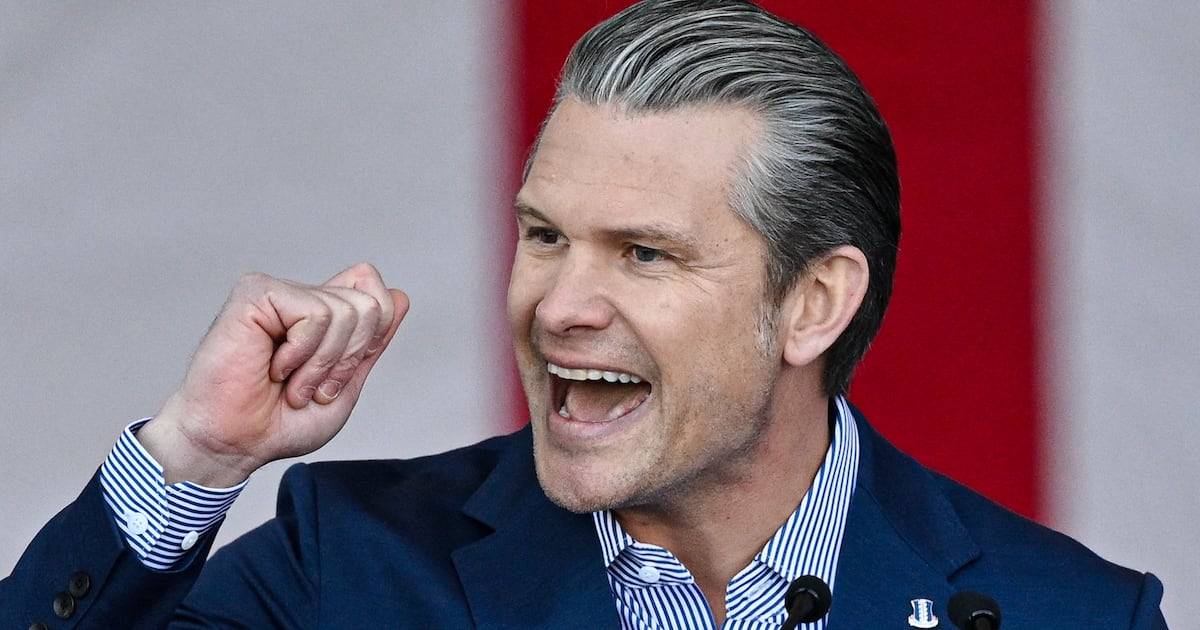BROOKLYN, New York—Monday night in Williamsburg, at one stop on the alt-country-quasi-emo band Pinegrove’s comeback tour, a crowd of several hundred waited in the rain for an hour. The doors had opened at 7, but there was some hold-up. Bouncers made apologetic faces to fans, but offered no explanations. Still, the horde handled delays with unrelenting enthusiasm, occasionally erupting into shrieks.
In some ways, this was standard. Pinegrove fans notoriously pair the line-stamina of sneakerheads with the hyperbolic adulation of the inebriated (“Pinegrove are one of the greatest bands in the world right now,” a SPIN writer gushed in 2017). But if the religious fervor of the group’s followers, who dubbed themselves “pinenuts,” was a given last year, it wasn’t certain this time around. When lead singer Evan Stephens Hall took the stage, he thanked the crowd not only for weathering the rain, but for showing up at all. “It’s been a really challenging year,” he said. “It’s great to see you here tonight, still singing along.”
What Hall meant but didn’t mention explicitly, was the reason that this tour was the band’s first since fall of last year. In November of 2017, a month after allegations of Harvey Weinstein’s chronic sexual misconduct triggered a national outpouring of assault stories, Hall posted a long message on Facebook to his fans, acknowledging that he had been “accused of sexual coercion,” adding, vaguely, that he had occasionally flirted with fans.
After the post appeared, Pinegrove cancelled their national tour, shelved their upcoming album, and disappeared from public life. Followers received the news with confusion. Hall’s message hadn’t explained what, exactly, he was apologizing for, leaving its readers to draw their own, wide-ranging conclusions. “So 1 of 2 things seems to be happening here,” a user named Adam James Pearson commented under the Facebook message. “Either 1. You aren’t addressing the real allegations brought up against you. Or 2. You are martyring yourself for having a consensual relationship with another adult. Either way, you are a complete coward.”
As time passed, the Pinegrove allegations got informally filed into the Aziz Ansari-realm of #MeToo dramas. Like Ansari, Hall had branded himself as a nice guy. The band—formed at the liberal arts college Kenyon and grown largely by word-of-mouth until their breakthrough album Cardinal established them as an indie favorite in 2016—often sang about love and heartbreak with the emotional openness of a high school journal. They had been wildly rewarded for it; Cardinal had placed on many year-end lists, and just two weeks before the Facebook post, Pitchfork had named the band’s single “Intrepid,” a lovesick duet between Hall and the band’s one female member, Nandi Rose Plunkett, a Best New Track. Also like Ansari, there was uncertainty as to whether Hall’s wrongdoing constituted sexual misconduct, or simply romance gone awry. That confusion only mounted in April of 2018, when SPIN published an article revealing that Hall’s public confession had come at the behest not of the alleged victim, who had hoped to keep the conflict private, but of a third-party mediator—the founder of a grassroots non-profit called Punk Talks.
Punk Talks, a mental health organization focused on DIY music scenes, was formed in 2015 by a college senior named Sheridan Allen. Touting the slogan “You don’t have to be sad to make great music,” Punk Talks aims to connect musicians, fans, and industry employees with mental health professionals. Allen, who is not a licensed therapist, was not supposed to act as a counselor herself. But SPIN obtained a thread of emails indicating that Allen had played an outsized role in the Pinegrove misconduct allegation, writing in one message that she was “working directly to take down the biggest band in indie right now.” The alleged victim told SPIN that Allen had pressured Hall to come forward without her consent, leveraging details which she had “never expected to be made public in this already complicated and traumatic situation.” (In an email to The Daily Beast, Allen wrote that she took full responsibility for her actions). Throughout all this, the band stayed quiet. They declined interviews, stayed off social media, and released no new music, though Hall confirmed a third album had been completed.
In September of 2018, a long essay appeared on Pitchfork, publishing Hall’s first comments since the Facebook post. The piece received mixed reviews, in part because it was written by someone friendly with the band (it opens with the writer getting tattooed by Pinegrove bassist Nick Levine), but also because Hall’s quotes seemed to indicate the same vague abdication of responsibility as the Facebook post. (“I’ve gotten into all sorts of trouble throughout my life just not knowing when to stop, verbally,” he told the author. “Being honest in situations when I’m not supposed to be... Honest to a fault, I guess”).
Still, the article marked the band’s quiet return to the public stage. Two days after it appeared, Pinegrove released their third album, Skylight, with little fanfare or promotion other than the promise to donate proceeds to various charities. Not long later, they announced a 10-stop comeback tour in the U.S. and Europe, partnering with the women’s rights organization Calling All Crows to lead active bystander workshops before each one. If the band harbored doubts as to whether their fans had forgiven them, it was cleared up first when several shows sold out, and again on Monday, when the line of concertgoers stretched two city blocks.
But for less evangelical listeners, the return left some questions unanswered. As the #MeToo movement reached its zenith this past year, many men have fielded the question of how to publicly handle their allegations. There are now several examples of how not to do it—standouts include Kevin Spacey coming out, John Hockenberry likening himself to Lolita, and Stephen Elliott suing the maker of the “Shitty Media Men” list—but few models of how to do it well.
The gold standard, bizarrely, came from Rick and Morty co-creator Dan Harmon, who dedicated seven minutes on his podcast, Harmontown, to detailing his harassment of comedy writer Megan Ganz. Harmon’s apology was good because it was clear. He stated what he did and why he did it, without hedging, excuses, or virtue signaling. Ganz later called the segment a “masterclass in How To Apologize,” and her forgiveness was so final that Harmon has been welcomed back into good favor in a way few #MeToo men have achieved. In the past few months, as prominent performers like Louis C.K. and Aziz Ansari stage their return from exile, the question of rehabilitation has become even more pressing. The comics claim they’ve served their time, but the Harmon model attests that time may be less important than a thorough and honest reckoning.
In Hall’s apology, he wrote that it was “the beginning of a long process of reflection.” In the year or so since, the band did step back. They didn’t protest or point fingers, even when Punk Talks gave them reason to. But throughout his reflection, Hall has stayed silent. If Harmon mediated his allegations by dispelling ambiguity, Hall bred confusion by embracing it. One might have expected the band’s return to come with some candor. Instead, they deflected questions and declined interview requests (including for this article), save for one from a friendly fan.
At Monday’s show, Hall didn’t mention the ordeal at all, except to affirm that he’d reflected. The saga came up just once in the performance. During a song transition, a drunk man shouted, very loudly, from the audience: “Evan! We forgive you!” A few members of the crowd applauded; most groaned. The singer, busy reflecting, took a beat. “Thank you for your enthusiasm,” he said. “I did not understand what you said.”







